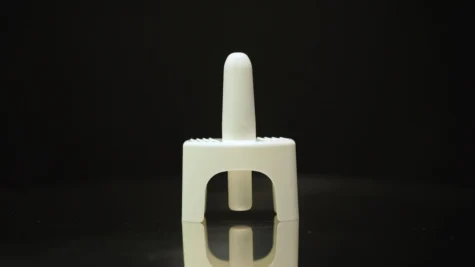Cravings are an inevitable part of the recovery process. Whether you’re recovering from substance abuse, food addiction, or other behavioral addictions, the urge to indulge in old habits can be overwhelming. These cravings can strike at any time and may feel uncontrollable, but with the right coping strategies, it is possible to manage and overcome them. At Southern Sky Recovery, we understand that recovery is not just about abstaining from substances or behaviors; it’s about learning how to live a fulfilling life without relying on unhealthy habits. By utilizing effective coping strategies, individuals can learn to face cravings with confidence and resilience.
Understanding Cravings
Cravings are intense, often sudden urges or desires to use a substance or engage in a behavior that one is trying to avoid. These urges are a natural part of the recovery process and often occur as a response to triggers such as stress, anxiety, or exposure to people or environments associated with past behaviors. While cravings can feel powerful, they do not have to control your actions. The key to overcoming cravings is recognizing them for what they are—temporary, manageable, and not a reflection of your strength or resolve.
Practice Mindfulness and Deep Breathing
Mindfulness is one of the most effective tools in managing cravings. When you’re caught in the grip of a craving, it can be easy to act impulsively. Practicing mindfulness allows you to pause, take a step back, and observe your cravings without judgment. This practice involves focusing on the present moment and acknowledging your thoughts and feelings without immediately reacting to them.
One simple mindfulness technique is deep breathing. When you feel a craving coming on, try taking several deep breaths, focusing on the sensation of air entering and leaving your body. Breathing deeply can help activate the parasympathetic nervous system, which calms your body’s stress response. By grounding yourself in the present moment, you can allow the craving to pass without giving in.
Distract Yourself with Healthy Activities
Cravings often thrive when we have idle time to dwell on them. Keeping your mind and body engaged in positive activities can help take the focus off the craving. Engage in activities that you enjoy or that provide a sense of accomplishment. Exercise is a great option, as it can not only distract you but also release endorphins—natural mood enhancers that can help improve your emotional state.
Other activities such as reading, journaling, listening to music, or practicing a creative hobby like painting or knitting can also provide valuable distractions. Additionally, spending time with friends or family members who support your recovery can help keep your mind off cravings and remind you that you’re not alone in your journey.
Identify and Avoid Triggers
Triggers are situations, emotions, or environments that prompt cravings. For example, stress, social gatherings, or certain people may trigger the urge to relapse into old habits. One of the most effective ways to manage cravings is to identify and avoid these triggers as much as possible.
It can be helpful to keep a journal where you track your cravings, noting the situations that tend to bring them on. Once you identify your triggers, take steps to reduce your exposure to them. For instance, if you know that being around certain people or places leads to cravings, it may be beneficial to limit contact with them during vulnerable times.
However, it’s important to acknowledge that not all triggers can be avoided. When facing unavoidable triggers, it’s vital to have a plan in place. You may decide to engage in a grounding technique, call a supportive friend or sponsor, or remind yourself of the reasons you are in recovery.
Use the HALT Method
The HALT method is a powerful tool to combat cravings by identifying and addressing underlying needs that may be contributing to your cravings. HALT stands for:
- Hungry: Physical hunger can trigger cravings. If you’re feeling hungry, make sure you’re eating balanced meals throughout the day to avoid cravings that stem from hunger.
- Angry: Emotional anger or frustration can lead to cravings as a way to cope. Practice relaxation techniques or engage in stress-reducing activities to manage anger.
- Lonely: Loneliness can prompt cravings, as people may turn to substances or behaviors to fill the emotional void. Reach out to a friend, family member, or a support group to combat isolation.
- Tired: Fatigue can make you more vulnerable to cravings, as your body may be seeking a quick energy boost. Make sure to get adequate sleep and rest to maintain your physical and emotional well-being.
By checking in with yourself when a craving arises and asking if any of these needs are unmet, you can address the root causes of the craving and respond more effectively.
Use the 5-4-3-2-1 Grounding Technique
When cravings become overwhelming, the 5-4-3-2-1 grounding technique can be a powerful tool to help you regain control. This technique involves focusing on your senses to anchor yourself in the present moment and reduce the intensity of the craving.
To practice the 5-4-3-2-1 technique, follow these steps:
- 5: Look around and identify five things you can see.
- 4: Identify four things you can touch.
- 3: Listen for three things you can hear.
- 2: Identify two things you can smell.
- 1: Focus on one thing you can taste.
This exercise helps shift your focus away from the craving and back into the present moment, allowing your mind to refocus on something other than the urge.
Reach Out for Support
No one should have to face cravings alone. Reaching out for support is one of the most important strategies in overcoming cravings. Talking to a sponsor, therapist, or a trusted friend can provide you with the encouragement and reassurance you need to push through. Support groups, such as 12-step meetings or other recovery groups, offer a sense of community and understanding that can help you feel connected to others who share similar struggles.
Additionally, if you’re experiencing a particularly intense craving, it can be helpful to talk about your feelings with someone who can offer empathy and advice. This connection can act as a powerful reminder of why you chose recovery and the positive changes you’re working toward.
Focus on Long-Term Goals
Remember to keep your long-term recovery goals in mind when faced with cravings. Reflecting on the reasons why you chose to get sober or stop a harmful behavior in the first place can help you regain perspective and stay motivated. Write down your goals and refer back to them when you’re struggling with cravings. Visualizing the future you’re working toward can help you stay grounded and focused on your recovery journey.
Southern Sky Recovery Can Help You Stay Sober With Comprehensive Aftercare
Coping with cravings is an ongoing part of the recovery process. While cravings can feel overwhelming, they are manageable with the right strategies in place. By practicing mindfulness, avoiding triggers, seeking support, and using grounding techniques, individuals can build resilience and overcome cravings without giving in to old habits. At Southern Sky Recovery, we are here to provide the support and tools you need to succeed in your recovery journey. Remember, cravings are just temporary challenges, and with the right strategies, you can continue to build a brighter, healthier future.



